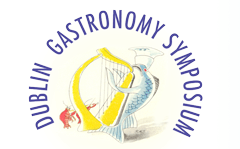Start Date
29-5-2020 5:15 PM
End Date
29-5-2020 5:30 PM
Description
The study of food, an integral component of culture, provides insights into our beliefs, customs, and daily life. When our lives revolve around the importance of food, how do we make sense of an interruption in that system? People with food allergies discover ways to make sense of their food allergies and learn how to communicate their stigmatized allergies to others. The reactions of non-allergic people to those with dietary restrictions have implications for allergy sufferers as well. Interviews revealed the taint perceived by food allergy sufferers and the sensemaking process they implemented to confront the taint through three distinct avenues: food choice morality, unwanted attention, and self-induced isolation. Within these constraints, allergy sufferers may need to create a mechanism to handle their dietary restrictions and to communicate their condition to others. Findings highlight effective communicative methods used by food allergy sufferers including surrogate protection, developing an enlightening narrative, selecting appropriate nomenclature for the food challenge, trusting the environment, and relationally specific disclosure rules. This study provides a foundation for understanding the cultural importance of food, how humans create identities related to food, how frequency and implications of food allergies affect people, and how dietary restrictions affect interpersonal communication.
DOI
https://doi.org/10.21427/fs6w-pj53
Included in
‘‘Please can we talk about politics or something controversial, instead of my stomach?’: a Communication Study of Food Discourse and Identity Construction.
The study of food, an integral component of culture, provides insights into our beliefs, customs, and daily life. When our lives revolve around the importance of food, how do we make sense of an interruption in that system? People with food allergies discover ways to make sense of their food allergies and learn how to communicate their stigmatized allergies to others. The reactions of non-allergic people to those with dietary restrictions have implications for allergy sufferers as well. Interviews revealed the taint perceived by food allergy sufferers and the sensemaking process they implemented to confront the taint through three distinct avenues: food choice morality, unwanted attention, and self-induced isolation. Within these constraints, allergy sufferers may need to create a mechanism to handle their dietary restrictions and to communicate their condition to others. Findings highlight effective communicative methods used by food allergy sufferers including surrogate protection, developing an enlightening narrative, selecting appropriate nomenclature for the food challenge, trusting the environment, and relationally specific disclosure rules. This study provides a foundation for understanding the cultural importance of food, how humans create identities related to food, how frequency and implications of food allergies affect people, and how dietary restrictions affect interpersonal communication.
